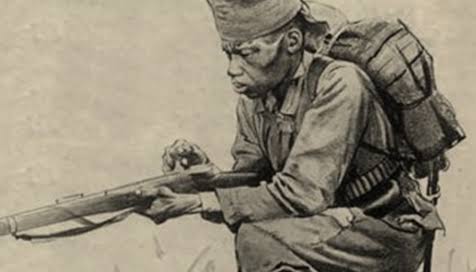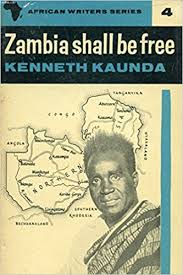This was the story of an African soldier who was not even called a soldier, but an askari, and yet sent to fight against Hitler, who was a horrible racialist.
(He) went to defend the so-called Western or Christain values. Differences existed in pay, uniform, food and in all conditions of service (from those of his English counterpart).
This Askari was demobilized with none of the promises made to him fulfilled. This Askari suffered so much, he ended up a road labourer.
Then he asked for a lift from his road foreman who put him at the back of a Government van while his dog shared the front seat with him.
At an hotel, the Big Bwana left him to look after his luggage while he himself went to take a meal. The dog was given some food while this ex-askari had nothing.
Then they arrived in town and this man, who risked his life just like his English counterpart, went to a shop to see inscribed above the door, NO DOGS ALLOWED INSIDE.
To his surprise when window-shopping he would see an actual dog right inside through the window.
On his attempting to get inside, he was met at the door with a big ‘Get out of here, you nigger, bobojana’ (meaning monkey). ‘No Kaffirs allowed in here.’
Then his own fellow black man came to order him out. ‘Tata kabiyeni kunse uko ku ntolokoso, ekushitila abafita muno mwa ba bwana epela.’ This means ‘Go out to the pigeonhole. Only white men may come in here.’

Then this ex-askari looked back to the days before the Second World War. He remembered how campaigns were conducted to recruit him, and others like him, the differences between a black and white serviceman, the promises he had been given of what could be done for him on being demobilized.
Then he would come nearer to where he was: how his road foreman exposed him to the heat, the cold on the rain while he shared the warmth and all with his dog.
Culled from Kenneth David Kaunda’s Zambia Shall Be Free. A slight modification has been made to the extract, particularly the removal of the recurrent modal auxiliary verb “would”.
This story is typical of post-second world war literature texts in British colonies and protectorates. Take for example Boro in Ngûgû wa Thiongo’s Weep not Child. He is our typical Askari in Ngûgû’s autobiographical novel.
Kenneth Kaunda told this story in mobilising Africans natives of Northern Rhodesia and reorienting them of the indignities suffered by them. He would later lead Northern Rhodesia to independence as Zambia and become its first president.
 WHATSAPP: Click HERE to join the new Literature PADI WhatsApp group to receive latest updates on your phone and for further literary discussions!
WHATSAPP: Click HERE to join the new Literature PADI WhatsApp group to receive latest updates on your phone and for further literary discussions!






